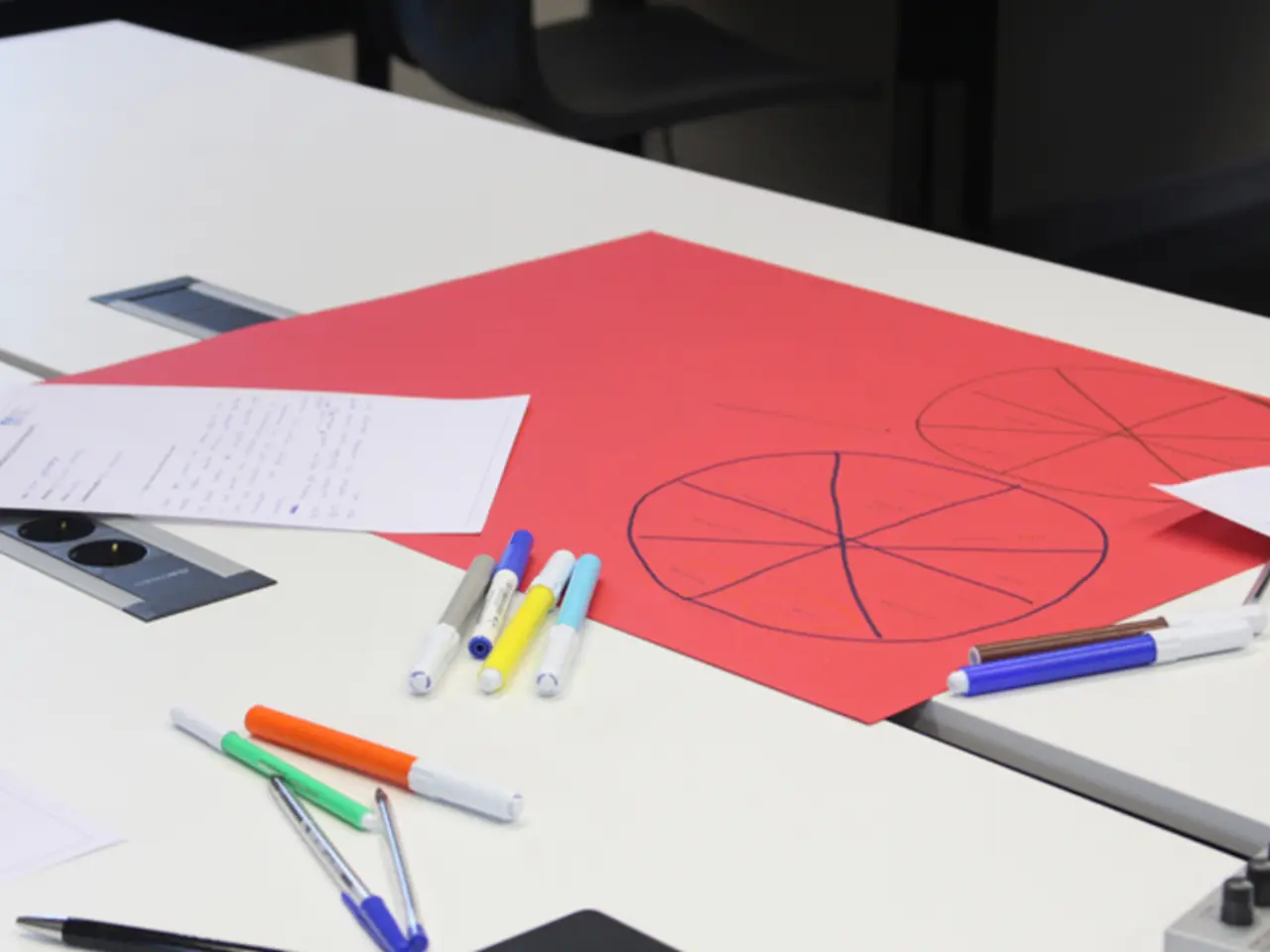Decline in Mental Faculties Unaddressed - Silence Pervades Society
In today's fast-paced world, cognitive decline is a growing concern, affecting both employers and educators. Burnout, a condition often associated with emotional exhaustion, also leads to cognitive dulling, reduced problem-solving ability, and emotional dysregulation.
The root cause of this decline can be traced back to several factors. Chronic psychological stress and socioeconomic factors, such as rising economic insecurity, job instability, and poverty, particularly in midlife, are accelerating memory decline. Chronic stress hormones, like cortisol, can shrink brain areas critical for memory and executive function, contributing to cognitive decline and higher dementia risk. This is particularly evident in populations facing socioeconomic disparities, with studies showing that black women and those living in impoverished neighborhoods experience faster memory decline [1][2].
Aging and biological processes also play a significant role. As we age, our brains naturally undergo changes that slow information processing and impair memory and attention. Disruptions in protein homeostasis (proteostasis) accumulate with age, causing protein aggregates linked to neurodegenerative diseases like Alzheimer’s and Parkinson’s. Cerebral blood flow reduction and chronic brain ischemia further heighten dementia risk [3][4].
Environmental factors, such as exposure to air pollution and unhealthy lifestyle habits, can worsen cognitive decline in middle-aged and elderly populations. These factors interact with aging processes to affect cognitive function [4].
Lifestyle and behavioral habits also contribute to cognitive decline. Avoiding mental challenges results in fewer new neural pathways forming, which accelerates cognitive decline. Conversely, active engagement in learning new skills or hobbies promotes neurogenesis and cognitive resilience. Additionally, physical inactivity contributes to poorer cognitive outcomes, while moderate exercise like brisk walking can boost cognitive function [2].
To combat cognitive decline, individuals are encouraged to engage in regular physical activity, challenge the brain with new learning, manage stress effectively, adopt healthy lifestyle practices, and stay mentally active. Regular physical activity, such as walking, dancing, swimming, or gardening for about 30 minutes most days, can significantly boost brain function and slow decline [2]. Taking up complex hobbies, like learning a new language, digital photography, or music, stimulates brain plasticity and memory improvements [2]. Effective stress management techniques, such as meditation, journaling, therapy, or exercise, can mitigate the damaging effects of chronic stress hormones on the brain [1][2]. Adopting healthy lifestyle practices, such as reducing exposure to air pollution, maintaining a healthy weight, avoiding excessive alcohol, and fostering social engagement, can support cognitive health [4]. Regularly engaging in mentally demanding activities, like reading challenging books, puzzles, or debates, can foster neurocognitive adaptability [2].
Understanding that some degree of cognitive decline is biologically inevitable with age, the combination of reducing risk factors (stress, pollution, unhealthy habits) and proactively strengthening cognitive reserves through physical and mental exercise offers the best approach to maintaining mental sharpness across the lifespan.
References:
[1] Alzheimer's Research & Therapy (2025) [2] Journal of Cognitive Neuroscience (2025) [3] Neuron (2025) [4] Environmental Health Perspectives (2025)
- Technology, despite its benefits, can contribute to screen time, which, when excessive, may negatively impact cognitive function and brain health.
- To foster creativity and better mental health, incorporating nootropics, like omega-3 fatty acids, can potentially enhance cognition, attention, and memory.
- Embracing a health-and-wellness lifestyle that includes exercise, good nutrition, and sufficient sleep is critical for maintaining optimal brain function and reducing the risk of cognitive decline.
- According to science, mental activities that challenge the mind, such as education and self-development, stimulate cognitive functioning and preserve brain health.
- In today's fast-paced world, managing stress effectively is essential for maintaining focus, as chronic stress can lead to cognitive dulling and emotional dysregulation.
- Personal growth and learning new skills not only boost cognitive function but also promote neurogenesis, which is the process of brain cells growing and regenerating.
- In addition to exercise, maintaining a balanced diet rich in nutrients is crucial for supporting the brain's focus, memory, and overall health.
- The combination of regular physical activity, mental challenges, and stress management techniques can help combat cognitive decline associated with aging.
- Science has shown that sleep is essential for brain health, as it plays a crucial role in memory consolidation, learning, and neurocognitive adaptability.
- Chronic stress can lead to higher dementia risk by affecting the brain areas critical for memory and executive function, as stress hormones like cortisol can cause shrinkage over time.
- Fitness and exercise contribute to better cognitive outcomes, while poor fitness can increase the risk of cognitive decline and neurodegenerative diseases.
- Engaging in mental exercises, like reading, debating, or puzzles, can help improve memory, problem-solving ability, and slow cognitive decline in age.
- Lifestyle factors, such as poverty, job instability, and poor nutrition, can exacerbate the effects of cognitive decline, particularly in midlife populations facing socioeconomic disparities.




